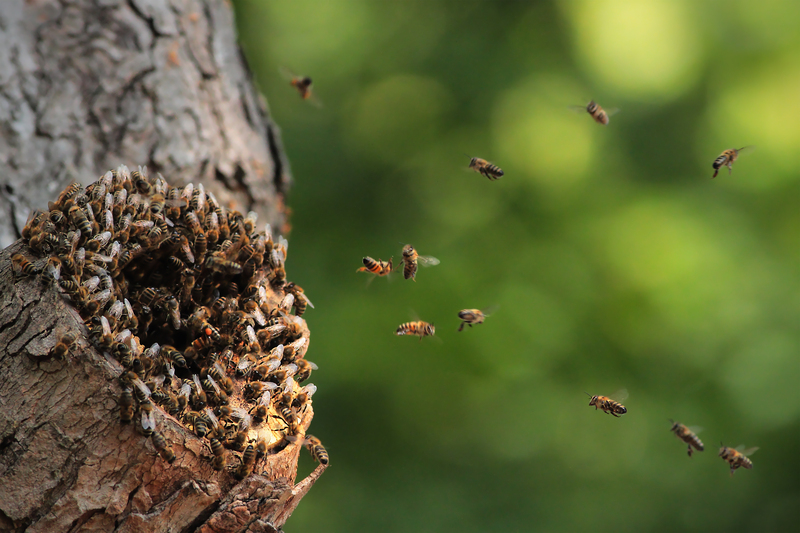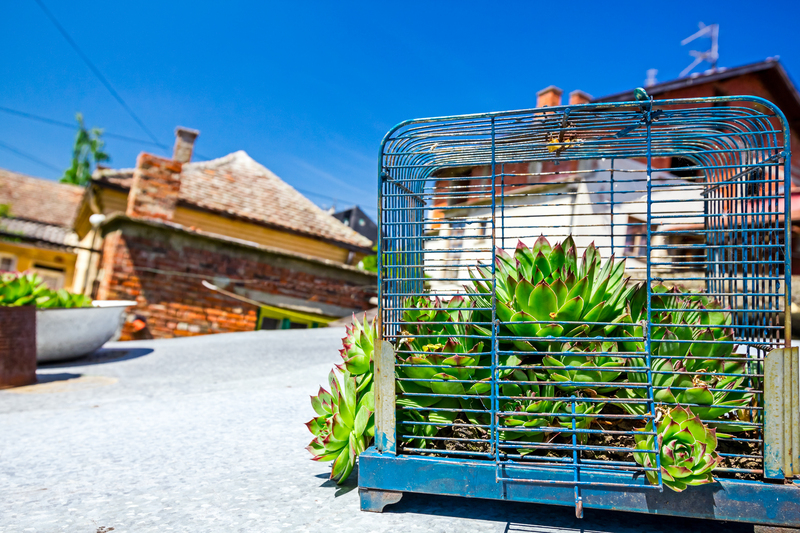3 Essential Tips for Effective Weed Control
Posted on 31/08/2025
3 Essential Tips for Effective Weed Control
Maintaining a healthy, weed-free garden or lawn can seem like a constant battle for homeowners and gardening enthusiasts alike. Weeds not only compete with your plants for water, nutrients, and sunlight, but they can quickly take over if left unchecked. This comprehensive article covers three essential tips for effective weed control to help you achieve a beautiful, lush landscape with minimal effort. Whether you are a beginner or an experienced gardener, these vital weed management strategies will empower you to keep unwanted plants at bay.

Understanding Weed Growth: The Foundation of Control
Before diving into the core weed control techniques, it's crucial to understand why weeds proliferate in the first place. Weeds are opportunistic--they exploit any gaps in your garden ecosystem, thriving where soil is exposed or disturbed. Not all weeds are identical: some are annuals that grow and die within one season, while others are perennials capable of returning year after year from deep roots or underground stems.
- Annual weeds--Grow rapidly, produce abundant seeds, and complete their life cycle within a single year (e.g., crabgrass, chickweed).
- Perennial weeds--Return each season, often tougher to eradicate due to extensive root systems (e.g., dandelion, bindweed).
By understanding these growth habits, you can tailor your weed control strategy for maximum efficiency. Now let's look at the three essential tips every gardener should know for effective weed management!
Tip #1: Preventative Measures--Stop Weeds Before They Start
Why Prevention is Key for Weed Removal
The old adage "an ounce of prevention is worth a pound of cure" rings especially true for weed control. Preventative steps are often the easiest and most effective way to maintain a weed-free landscape, as they target the underlying causes of weed infestation.
Mulching: Nature's Weed Blocker
One of the most powerful tools in weed prevention is mulching. Applying a thick layer of mulch not only insulates soil and retains moisture but also blocks sunlight--crucial for weed seed germination.
- Use organic mulches (wood chips, straw, leaves) or inorganic options (landscape fabric, gravel) depending on your landscape needs.
- Maintain at least a 2-3 inch layer to smother weed seeds.
- Renew mulch annually as it decomposes for continuous protection.
Dense Planting and Ground Covers
Strategically space your plants so the canopy shades the soil. Consider planting fast-growing ground covers like creeping thyme or vinca, which can outcompete weeds for resources and leave them little room to take root.
Lawn Care Best Practices for Weed Control
For lawns, mow high and regularly (leaving grass at 3-4 inches) to shade out weed seedlings. Fertilize and water appropriately so your turf remains thick and healthy, which naturally suppresses weed growth.
Tip #2: Mechanical and Manual Weed Removal Techniques
Hand-Pulling and Hoeing: Tried-and-True Methods
If weeds have already emerged, physical removal is often the best approach--especially for organic or chemical-free gardens. Here's how to maximize your effort:
- Weed when soil is moist (after rain or watering). The roots will slip out more easily.
- Pull from the base, grasping as low as possible to ensure you remove the entire root. Many perennials regrow from root fragments.
- Use ergonomic tools like long-handled hoes, weeding forks, or root extractors to get below the soil surface with less strain.
Weed Barriers and Solarization
Install landscape fabric or plastic sheet barriers beneath pathways, garden beds, or decorative stones. For larger areas, consider solarization: cover soil with clear plastic during the hot summer months. The intense heat kills weed seeds, soil-borne pests, and diseases--an eco-friendly way to prepare new planting beds.
Regular Maintenance: The Secret to Long-Term Control
Consistency is key for sustainable weed control. Devote just 10-15 minutes a week to walking your landscape and removing any new weeds before they seed. Early action is easier and prevents massive infestations later on.
Tip #3: Smart Use of Targeted Herbicides
Understanding Selective and Non-Selective Herbicides
When used responsibly, herbicides offer an efficient way to manage tough or persistent weeds. However, safety and selectivity are paramount:
- Selective herbicides kill only specific weed types (e.g., broadleaf or grassy weeds) while leaving your desirable plants unharmed. These are ideal for lawns where you want to eliminate dandelions but preserve grass.
- Non-selective herbicides kill most plants they contact. Use these for hardscape cracks, driveways, or areas being cleared for replanting.
Best Practices for Applying Weed Killers
To minimize environmental impact and prevent damage to your garden, follow these smart herbicide application methods:
- Always read and follow label instructions, respecting re-entry intervals and safe application zones.
- Spot-treat only problem areas rather than blanket-spraying your entire yard.
- Apply on calm, dry days to prevent drift onto non-target plants.
- Consider organic or natural alternatives (such as vinegar-based sprays or corn gluten meal) for eco-friendly weed suppression.
Integrated Weed Management: Combining Methods for Maximum Success
The most effective weed control systems combine all three approaches--prevention, physical removal, and selective herbicide use--tailored to your unique landscape challenges. This integrated management reduces chemical dependence, preserves beneficial organisms, and keeps your property looking its best season after season.
Bonus: Essential Tools for Effective Weed Management
Having the right tools can make your weed-fighting mission easier and more productive. Below is a list of must-have weed control tools every gardener should consider:
- Hand hoes & stirrup hoes: For quick uprooting of small weeds.
- Weeding knives & forks: Perfect for extracting tap-rooted perennials like dandelions.
- Mulch spreaders or rakes: Efficient for even mulch coverage.
- Sprayers (pump or backpack): For precise herbicide or organic spray application.
- Gloves & knee pads: Protect your hands and knees during extensive weeding sessions.
Common Weed Control Mistakes to Avoid
Even experienced gardeners can make mistakes that encourage weed infestations. Ensure effective weed prevention and management by steering clear of these common pitfalls:
- Ignoring weeds until they seed: One weed can produce thousands of seeds--remove weeds as soon as they appear!
- Improper mulch thickness: Too thin won't block sunlight; too thick can suffocate plant roots.
- Over-reliance on chemical herbicides: Chemicals alone rarely solve chronic weed issues and can harm soil health if overused.
- Neglecting regular garden maintenance: Weed control is an ongoing process. Frequent inspections catch problems early.

Frequently Asked Questions about Weed Control
1. How often should I mulch for weed control?
Mulching should be refreshed every year or whenever you notice the layer thinning. In windy or rainy climates, you may need to top up mulch more often to maintain effective coverage.
2. Are organic weed killers effective for all types of weeds?
Organic options can work well for small, young weeds and as part of an integrated strategy. However, stubborn perennial weeds may require repeat applications or combination with physical removal for best results.
3. Can I compost weeds after removing them from my garden?
It's safe to compost most young, non-seeding weeds. Do not compost weeds with seeds or aggressive perennials with roots, as they may survive and spread when you use the compost.
Conclusion: Take Charge of Your Landscape with Smart Weed Control
Weed management does not have to be an endless struggle. By applying these three essential tips for effective weed control--prevention, physical removal, and targeted herbicide use--combined with regular care and smart gardening practices, you can cultivate a thriving, beautiful yard all year round. Equip yourself with the right tools, stay consistent in your efforts, and your garden will reward you with strong, flourishing plants and far fewer weeds.
Ready to reclaim your landscape? Start implementing these proven weed control tips today for a more manageable and enjoyable outdoor space!
Latest Posts
Tips for Starting Your Own Herb Garden
Discover Strategies to Shield Your Garden from Severe Weather Threats
Transforming Organic Waste into Fertile Soil
Mastering the Basics: 9 Essential Gardening Tips for Beginners

